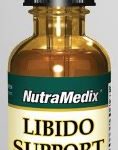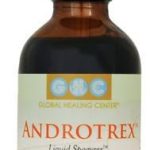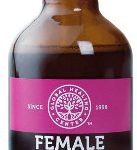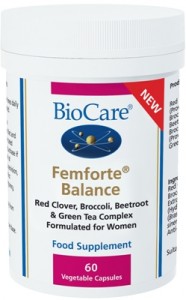Unfortunately, decreased sexual libido – often referred to as sexual dysfunction (especially in men) – may prove embarrassing to talk about and address for many people, mostly owing to social convention and the natural privacy that tends to surround sexual activity. And, perhaps because of that reason, when things aren’t right in the bedroom, so the saying goes, a good number of people turn to synthetic medication – in other words, tablets – to treat whatever may be wrong. Sure, this keeps things as private as possible, but is it the right solution? Well, in too many cases pills may actually make things worse (they do tend to cause side-effects), so is there anything you can do to stimulate libido in a more natural way? The answer is a resounding yes – there are several different things you can look to try.
Get up and get exercising
This first step shouldn’t come as any sort of surprise when you think about it; physical intimacy is a physical activity so other kinds of physical activity will surely only help when it comes to reinforcing, strengthening and reigniting libido. Indeed, research proves that men suffering from impotence tend to get more out of their specific erectile dysfunction (ED) treatment when they combine it with general, sensible exercise1.
Such beneficial exercise shouldn’t just be restricted to men, though. One of the reasons women tend to experience a loss – sometimes dramatically so – of sexual desire is due to depression (and this can only be exacerbated by side-effects of certain antidepressant medication). Yet, recent research suggests that, thanks to exercise before engaging in physical intimacy, women in such a situation enjoy an increased experience and more satisfying response to the sexual act2.
… And don’t forget to exercise your mind
Don’t doubt it; stimulating your mind with also help with your sexual stimulation – so much of which is down to the effect it engenders in the mind, after all. A sharper, on-the-ball brain will only help. Indeed, a study conducted in the last few years found that, in both men and women, imagination proved hugely beneficial in stimulating arousal – with unstructured fantasies the most successful. Mind over matter, as it were3!
Breathing and stretching exercises
Going back to getting your body into good physical shape, another of the sexual libido tips that’s highly advised is breathing and stretching. Deep breathing is widely regarded to be good for the body; filling the lungs with air so they can pull in oxygen (and emit poisonous carbon dioxide), ensuring the muscles and organs receive extra helpings of that all-important chemical element for the processing of food for cells throughout the body.
Similarly, stretching (so long as it’s sensible and not overdone) is excellent for keeping one’s muscles in good shape – hence why we all tend to have an urge to stretch after waking up from a night’s sleep when our bodies have been in a single position for a good deal of time. And to underline all this, another study among men proved that those of them who undertook 20 sessions of such breathing and stretching exercises did genuinely enjoy increased sexual desire and response compared to those that didn’t4.
Give your body the sunlight it needs
Surely everyone’s aware that sunlight’s good for you. Not only does it boost your Vitamin D levels, which in turn boosts your serotonin levels thus driving up positive outlook by helping the effective regulation of mood, anxiety, appetite, cognition and sleep, but – essentially because of this process – it also encourages sexual activity in both genders5. Specifically, because sunlight stimulates Vitamin D synthesis it also stimulates the body’s neurotransmitter function which inevitably helps stimulate sexual desire and satisfaction. Plus, of course, when you’re outside getting sunlight, you can also get that aforementioned physical and mental exercise.
And what about chocolate?
What about it, indeed? It’s long been suggested – somewhat light-heartedly, admittedly – that eating chocolate ‘targets’ the same part of the brain (and, thus, can arouse you in essentially the same way) as sexual activity. Is that really true? Well, there may be something in it. Either way, when it comes to libido enhancement, a study found that among Italian women eating chocolate actually coincided with them enjoying higher sexual activity6. So, does the fact chocolate contain so many antioxidants and phytochemicals actually help in the bedroom? Who really knows. Yet, the giving and receiving of chocolate is a time-honoured tradition of, if you will, the ‘mating dance’ performed by human couples, which can surely then only help boost libido – so why turn down the chance of sharing chocolate with your loved one?
Sexual libido supplements
All the same, a far more recognised and far more dependable route to take in attempting to naturally boost your libido is to try naturally-derived supplements, designed and produced specifically for the purpose. If you check out the ‘Sexual Health & Libido’ section here on our website at The Finchley Clinic, you’ll see we sell a selection of such products – suitable for both men and women. Here are three examples for you to consider:
Libido Support – created and designed explicitly to improve libido, this supplement contains several natural ingredients traditionally associated with the natural boosting of sexual desire; namely Epimedium leaf extract, Tribulus fruit extract, Jatropha macrantha stem extract, Muira Puama bark extract, Maca root extract, Eurycome root extract and Eustephia bark extract.
Androtex – this product may assist the male body in regulating proper hormone balance to create superior vitality, thus promoting the body’s natural responses; note: no preparation or special timing is required.
Female Fuzion – a preparation of herbs forming an elixir whose aim is to deliver health and longevity in terms of sexual libido; in essence, a female-focused equivalent to Androtex.
References:
- Maio G., Saraeb S. and Marchiori A. ‘Physical activity and PDE5 inhibitors in the treatment of erectile dysfunction: results of a randomized controlled study’. J Sex Med. 2010 Jun; 7 (6): 2201-8. doi: 10.1111/j.1743-6109.2010.01783.x. Epub 2010 Mar 30.
- Cormie P., Newton R. U., Taaffe D. R., Spry N., Joseph D., Akhlil H. M., Galvão D. A. ‘Exercise maintains sexual activity in men undergoing androgen suppression for prostate cancer: a randomized controlled trial’. Prostate Cancer Prostatic Dis. 2013 Jun; 16 (2): 170-5. doi: 10.1038/pcan.2012.52. Epub 2013 Jan 15.
- Goldey K. L. and van Anders S. M. ‘Sexual arousal and desire: interrelations and responses to three modalities of sexual stimuli’. J Sex Med. 2012 Sep; 9 (9): 2315-29. doi: 10.1111/j.1743-6109.2012.02845.x. Epub 2012 Jul 12.
- Bay R., Ismail S. B., Zahiruddin W. M. and Arifin W. N. ‘Effect of combined psycho-physiological stretching and breathing therapy on sexual satisfaction’. BMC Urol. 2013 Mar 25; 13: 16. doi: 10.1186/1471-2490-13-16.
- Kontula O. and Väisälä L. ‘How does summer affect sexual desire?’. Duodecim. 2013; 129 (13): 1375-8.
- Salonia A., Fabbri F., Zanni G., Scavini M., Fantini G. V., Briganti A., Naspro R., Parazzini F., Gori E., Rigatti P. and Montorsi F. ‘Chocolate and women’s sexual health: An intriguing correlation’. J Sex Med. 2006 May; 3 (3): 476-82




